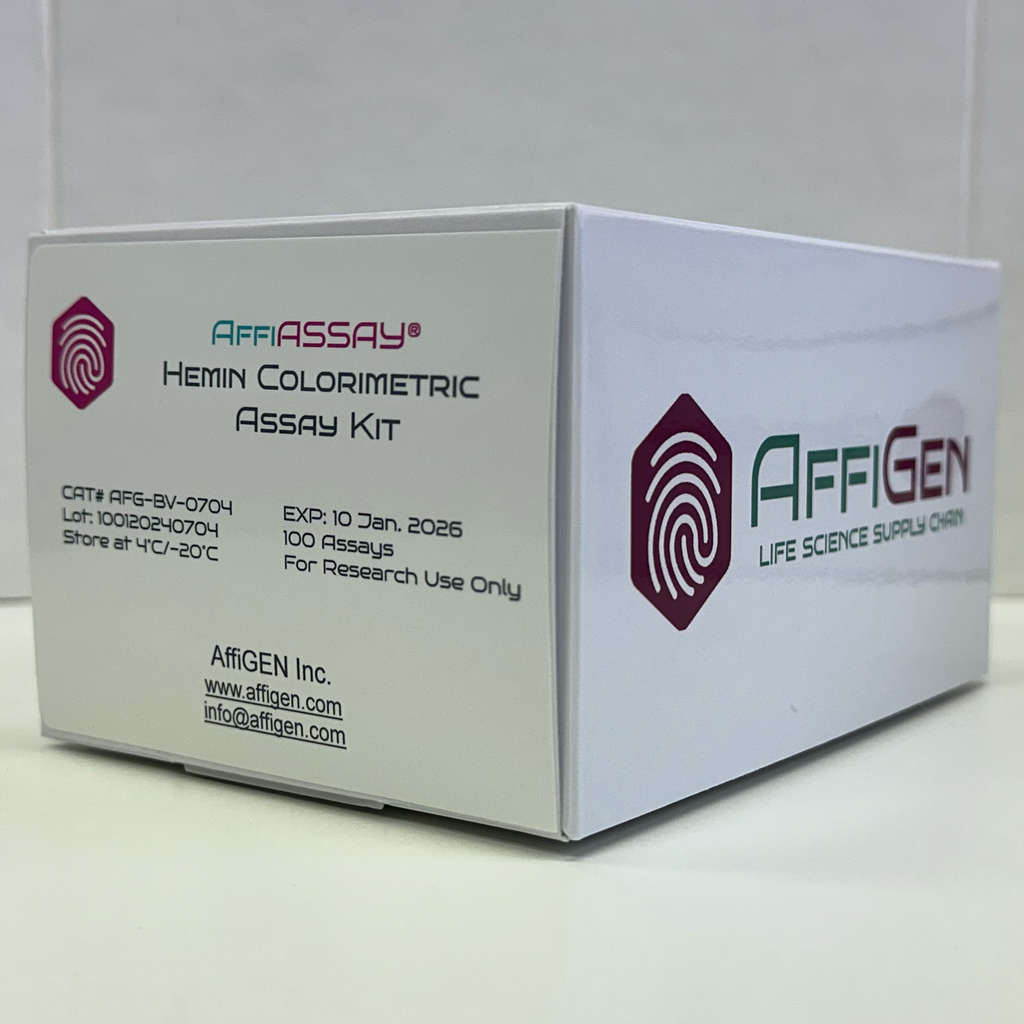Cancer research has made significant strides in the last few decades, but identifying reliable biomarkers for early detection, disease progression, and treatment monitoring remains a critical challenge. Among the biomarkers that have gained attention, polyamines and heme-related compounds play pivotal roles in cellular growth, apoptosis, and metabolism, all of which are tightly regulated and often dysregulated in cancer cells.
In this blog, we will focus on the importance of polyamine metabolism and heme regulation in cancer biology and how the Total Polyamine Fluorometric Assay Kit and the Hemin Colorimetric Assay Kit are essential tools in advancing cancer diagnostics and research.
Polyamine Metabolism in Cancer: A Key Player in Cell Proliferation
Polyamines—putrescine, spermidine, and spermine—are small organic compounds essential for cellular growth and function. Their synthesis is tightly regulated in healthy cells, but in cancer cells, polyamine metabolism often becomes dysregulated, contributing to abnormal cell growth and resistance to apoptosis.
Polyamines are involved in several cellular processes that are key to cancer progression, including:
- DNA stabilization: Polyamines interact with DNA, promoting its stability and aiding in replication and transcription.
- Cell cycle regulation: Elevated levels of polyamines can push cells through the cell cycle, promoting uncontrolled division, a hallmark of cancer.
- Metabolic reprogramming: Cancer cells often alter their metabolic pathways to maintain polyamine biosynthesis, ensuring that they have enough resources to fuel rapid growth.
Given their essential role in cancer progression, polyamine levels serve as valuable biomarkers for detecting and monitoring cancers, including colorectal, breast, and prostate cancer.
The Total Polyamine Fluorometric Assay Kit is an ideal tool for measuring polyamine levels in biological samples. By accurately quantifying polyamine concentrations, researchers can assess the impact of various treatments on polyamine metabolism and gain insights into potential therapeutic targets.
Applications in Cancer Research
- Early Detection: Elevated polyamine levels can indicate the early presence of cancer. Monitoring these levels can provide insights into tumor initiation and progression.
- Monitoring Tumor Growth: The Total Polyamine Assay can track changes in polyamine metabolism as tumors grow, aiding in the evaluation of tumor aggressiveness.
- Therapeutic Monitoring: Polyamine levels can be used to assess the efficacy of treatments that target polyamine metabolism, helping to personalize treatment regimens.
Heme Regulation and Its Role in Cancer Metabolism
Heme, a critical molecule in iron metabolism and oxygen transport, is also involved in regulating oxidative stress and cellular respiration. In cancer cells, heme metabolism is frequently altered, contributing to the aggressive nature of many cancers.
Heme and Cancer
- Oxygen Transport: Tumor cells often thrive in low-oxygen environments, and heme, as a component of hemoglobin, plays a significant role in how cells manage oxygen levels. Disruption in heme metabolism can affect the tumor’s ability to manage oxidative stress and maintain cellular homeostasis.
- Oxidative Stress and Damage: Heme’s role in oxidative stress pathways means that dysregulation of heme metabolism can lead to increased oxidative damage in cells. Cancer cells are particularly susceptible to this damage, and understanding heme levels can offer insights into tumor behavior and response to therapy.
- Angiogenesis: Heme regulates angiogenesis, the process by which new blood vessels form. Cancer cells often hijack this process to ensure an adequate blood supply to growing tumors.
The Hemin Colorimetric Assay Kit allows researchers to measure heme levels in various tissues and cancer models. By quantifying heme, this assay provides crucial data on the metabolic changes occurring in cancer cells, including how they adapt to oxidative stress and reprogram their metabolism.

Applications in Cancer Research
- Cancer Diagnosis and Prognosis: Heme levels are often elevated in certain cancers due to altered metabolic and stress response pathways. By measuring heme levels, researchers can gain insights into the aggressiveness of the disease and potential treatment targets.
- Therapeutic Evaluation: Monitoring heme regulation in cancer cells can also provide information on the efficacy of therapies aimed at disrupting metabolic pathways in tumors.
Both the Total Polyamine Fluorometric Assay Kit and the Hemin Colorimetric Assay Kit provide essential tools for investigating the molecular underpinnings of cancer biology.
AffiASSAY® Hemin Colorimetric Assay Kit
- Hemin Assays: The Hemin Colorimetric Assay Kit is designed to measure heme levels in samples with high accuracy and reproducibility. By providing insights into heme regulation in cancer cells, this kit supports research into oxidative stress and metabolic adaptations in tumors, offering opportunities for developing new therapeutic strategies.
Order Now
AffiASSAY® Total Polyamine Fluorometric Assay Kit
- Polyamine Assays: The Total Polyamine Fluorometric Assay Kit enables precise, high-sensitivity quantification of polyamines in cancer cell lines, tissue samples, and blood. This allows researchers to evaluate polyamine levels in response to different cancer therapies, identify early biomarkers, and study the impact of polyamine metabolism on tumor progression.
Order Now
The Value of Accurate Biomarker Measurement in Cancer Research
Accurate and reliable measurement of biomarkers like polyamines and heme is essential for advancing cancer research. These biomarkers are not only crucial for understanding tumor biology but also for:
- Identifying Novel Therapeutic Targets: Both polyamines and heme offer potential targets for cancer treatment. By understanding how these compounds contribute to tumor survival and progression, researchers can develop targeted therapies that disrupt these pathways.
- Personalizing Treatment: Monitoring biomarkers like polyamines and heme can guide clinical decisions, allowing for more personalized treatment strategies and improving patient outcomes.
- Predicting Disease Outcomes: Biomarker levels can help predict the likelihood of disease recurrence or metastasis, providing critical information for long-term patient management.
Conclusion: Advancing Cancer Research with Cutting-Edge Diagnostics
The Total Polyamine Fluorometric Assay Kit and the Hemin Colorimetric Assay Kit are indispensable tools for understanding the complex biochemical processes in cancer cells. By providing precise, reliable measurements of key biomarkers, these kits enable researchers to explore how polyamine metabolism and heme regulation contribute to cancer biology. As cancer research continues to evolve, these diagnostic kits will remain at the forefront, offering new opportunities for early detection, treatment monitoring, and personalized therapies.
At Vtrus, we are proud to support the global research community with innovative diagnostic solutions that advance scientific discovery and help improve patient outcomes.

